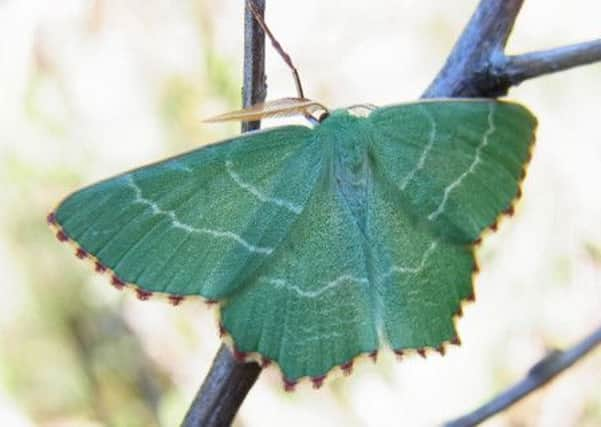Bid to save rareSussex emeraldmoth goes well


The species is unique to Dungeness and Romney Marsh and recent years have seen numbers falling. The moth feeds on wild carrot, which is also a favourite food for local rabbits.
Local landowners EDF Energy, Magnox Limited, RSPB and Cemex have been working with Natural England Butterfly Conservation and Romney Marsh Countryside Partnership to grow wild carrot in trial areas, and their efforts have been worthwhile with moth larvae recorded in each of the plots.
Advertisement
Hide AdAdvertisement
Hide Ad“This is rewarding news,” said Christine Blythe, Biodiversity Manager at EDF Energy. “We proved last year that we can get wild carrot to grow on the shingle from seed and now, by finding the larvae, we have shown that the population of Sussex emerald moth is benefiting”.
To give the moths a helping hand, the partners have each set up trial sites where the vegetated shingle habitat has been fenced off from rabbits.
Wild carrot seed, collected locally, was sown in the plots and following surveys carried out this spring the project team has revealed good news that Sussex emerald moth larvae have been found in each of the fenced-off sites.
Jo Dear of Natural England added, “The early success is hugely rewarding for the partnership and a testament to all the hard work and goodwill put in by everyone involved.
Advertisement
Hide AdAdvertisement
Hide Ad“ In response to the recent decline in numbers of the Sussex emerald moth at Dungeness, the partnership’s actions are already making a significant contribution towards its continued breeding success.”